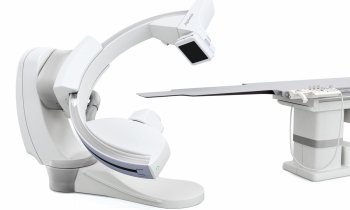
Image source: Adobe Stock/pikselstock
News • Long-term anxiety
Cardiac arrest 'haunts' women more often than men
More than 40% of women report anxiety four months after a cardiac arrest compared with 23% of men, according to research presented at ESC Acute CardioVascular Care 2023, a scientific congress of the European Society of Cardiology (ESC).
“Cardiac arrest occurs with little or no warning and it’s common to feel anxious and low afterwards,” said study author Dr. Jesper Kjaergaard of Rigshospitalet - Copenhagen University Hospital, Denmark. “After the initial shock and confusion, patients and their families have an abrupt change in their way of life, with medical investigations to determine the cause of cardiac arrest and in some cases diagnosis of a condition requiring treatment. This may add to the stress and anxiety. Our study indicates that women are more affected psychologically and could be targeted for extra support.”
Cardiac arrest causes one in five deaths in industrialised countries.1 The heart unexpectedly stops pumping blood around the body and if flow is not restored quickly, the individual passes out and dies within 10 to 20 minutes. Less than 10% of people who have a cardiac arrest in the community survive to hospital discharge.2,3 Anxiety and depression are frequent after critical illness and are strongly associated with reduced quality of life in patients4 and relatives.5 This study assessed the prevalence of anxiety, depression and post-traumatic stress disorder (PTSD) in cardiac arrest survivors and examined whether the severity of symptoms differed between women and men.
Our results highlight the need for long-term follow up of cardiac arrest survivors to identify and treat mental health issues
Jesper Kjaergaard
Between 2016 and 2021, the study enrolled 245 patients who had a cardiac arrest in the community and were admitted to hospital in a coma. Some 18% of participants were women. Psychological symptoms were assessed during a four-month follow up appointment. Anxiety and depression were measured using the Hospital Anxiety and Depression Scale (HADS). Patients gave a score of 0 to 3 for how often or strongly they experienced 14 items such as “I get sudden feelings of panic”, for a total of 0 to 21 for anxiety and 0 to 21 for depression. Scores between 8 to 10 indicate borderline anxiety or depression while 11 or higher indicates anxiety or depression. Symptoms of PTSD were assessed using the PCL-5 checklist (which assesses the Diagnostic and Statistical Manual of Mental Disorders, Fifth Edition (DSM-5) symptoms of PTSD). Respondents rated 20 symptoms from 0 ("not at all") to 4 ("extremely") for a total score of 0 to 80, with 31 to 33 indicating probable PTSD.
The average HADS score was 2.7 for depression and 4.8 for anxiety. Depression and anxiety scores were significantly higher in women (3.3 and 6.1, respectively), compared to men (2.6 and 4.5, respectively). Anxiety scores of 8 or more were observed in 43% of women and 23% of men. Looking at the anxiety results in more detail, 23% of women had a score of 8 to 10 compared with 11% of men, while 20% of women scored 11 or more compared with 12% of men. Women had significantly higher levels of PTSD compared with men (median score 33 vs. 26, respectively). In both men and women, anxiety was significantly correlated to PTSD symptoms.
Dr. Kjaergaard said: “The findings confirm our experience in clinical practice that the psychological effects of cardiac arrest persist for months. Anxiety was frequent, particularly in women. Our results highlight the need for long-term follow up of cardiac arrest survivors to identify and treat mental health issues. Patients should be encouraged to tell their healthcare professional about anxiety, depression and stress related to the cardiac arrest. Future studies are needed to investigate whether talking to a professional can help alleviate psychological symptoms.”
Source: European Society of Cardiology
28.03.2023











